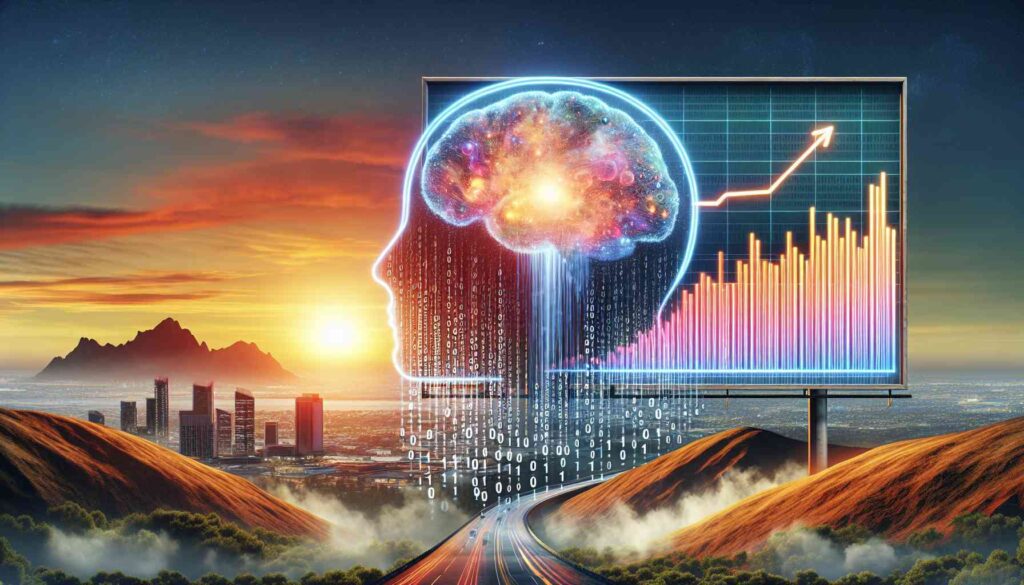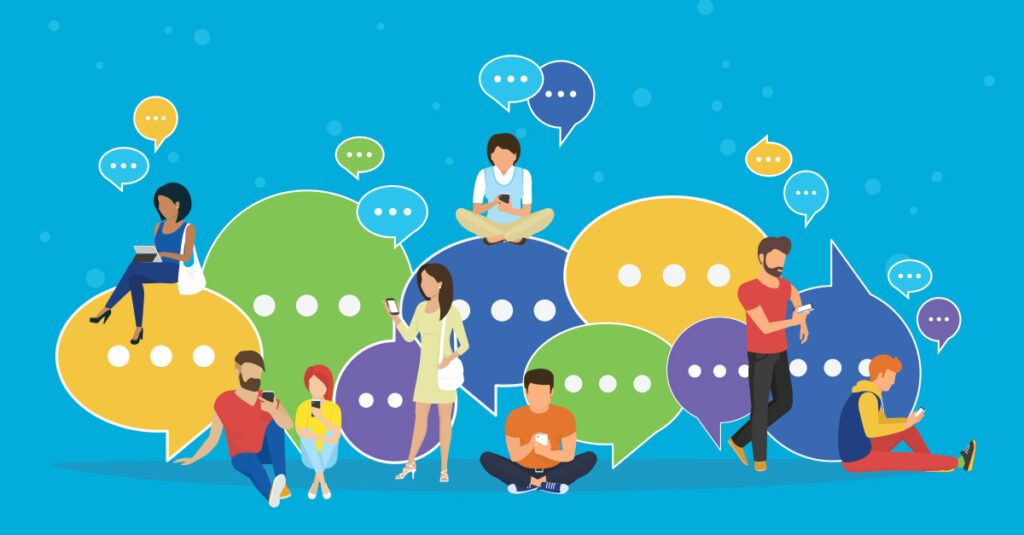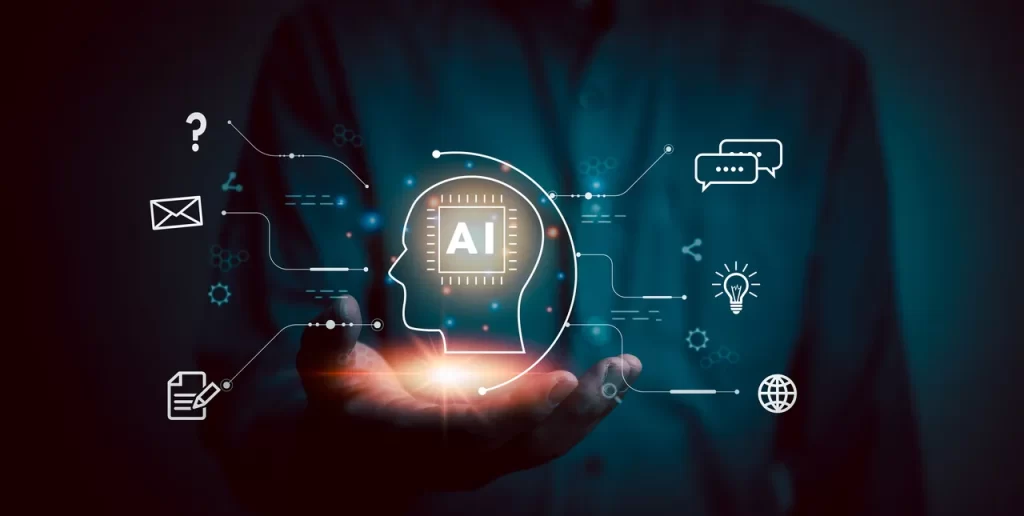In the dynamic landscape of twenty-first century marketing, the fusion of human creativity and artificial intelligence is redefining the rules of the game. As AI-powered platforms such as Phrasee and Smartwriter enhance content creation, our understanding of customers is becoming profoundly intimate. As we traverse this transformative journey, we’re discovering new realms of storytelling and reimagining the talent at the core of our teams. Amidst this exciting evolution, our challenge is to balance the efficiency of AI with the uniqueness of human ingenuity, crafting a holistic marketing narrative that truly resonates.
AI-Powered Content Masters: Thoughtful Analysis and Helpful Perspectives
Content intelligence platforms such as Phrasee and Smartwriter are designed to enhance human creativity with AI, not to replace it. These tools scrutinize data to create initial content drafts and fine-tune messaging. They aim to enable marketing teams to work more efficiently, allowing them to concentrate their creative energies on strategy and refinement.
Early adopters have reported encouraging outcomes, with Bank of America noting a 400% increase in email engagement using Phrasee. However, some are skeptical about the long-term originality of AI-generated content. There are also concerns about transparency in how these platforms handle customer data.
Despite the rapid progress of AI writing tools, the technology is still far from mastering human emotional intelligence and strategic storytelling. Thoughtful supervision and governance will be crucial in creating ethical platforms that gain consumer trust.
Responsible adoption that values both human uniqueness and AI efficiency could lay the groundwork for innovative collaborations between humans and machines. However, at present, the most compelling content still originates from the creative spark within individuals.
Get more AI + Marketing news
The AI Marketing Opportunity
Artificial intelligence (AI) is subtly yet powerfully reshaping the marketing landscape. While it’s still early days, the pace of AI integration is picking up in areas such as content creation, campaign design, predictive analytics, and beyond. Brands stand to gain greatly, from increased efficiency to deeper consumer insights to more compelling and emotionally engaging messaging.
Statistics highlight the growing influence of AI. Business Insider Intelligence predicts that global enterprise AI marketing spending could hit $60 billion by 2024, indicating a five-year compound annual growth rate of 29%. Adoption is widespread: a 2022 Statista survey reveals that 63% of marketers already harness AI, while an Adobe study shows that 80% believe AI is crucial to their future work.

The excitement around AI becomes clear when you look at AI-powered platforms redefining marketing aspects. Consider AI content tools like Phrasee, which crafts optimized subject lines and social posts for brands using natural language processing. The outcomes can be impressive: Phrasee reports that one major retailer saw a 289% increase in email open rates. Then there are creative AI platforms like Canva, which make graphic design a breeze for small businesses.
The beauty of AI lies in its ability to enhance human intelligence, not replace it. AI shines in statistical analysis, revealing patterns and offering recommendations on a large scale. However, the creative, strategic planning and decision-making on which ideas to pursue remain a human task. AI does have its limitations, such as potential biases, which teams need to address actively. Yet, when used responsibly, AI can boost decision-making.
The coming years will reveal whether AI can fulfill its potential in areas like predictive analytics, campaign personalization, and creative innovation. It’s wise to temper expectations given past hype cycles, but the use cases demonstrate enormous potential. Brands that responsibly harness AI for the benefit of consumers – while ensuring their teams have the skills and oversight to manage it – could gain a competitive advantage. The opportunity seems more evolutionary than revolutionary, but by 2024, AI could very well be setting new standards in marketing.
AI-Powered Content Masters: Informative Content and Varied Sentence Structure
AI content intelligence platforms, such as Phrasee and Smartwriter, are enhancing the creation and performance of marketing messages. Brands that utilize these tools are witnessing improved campaign outcomes.
For instance, Virgin Holidays boosted email open rates by 41% and click-through rates by 49%. Similarly, Domino’s Brazil experienced a surge in video view rates, with an increase of over 150%.
The natural language generation capabilities of these platforms simplify the ideation process. Simultaneously, machine learning scrutinizes data like past performance, customer demographics, and real-time response rates to guide content refinement.
This enables marketers to generate large volumes of resonant, effective copy that is tailored to their goals and audiences.
While AI content masters show early potential in handling previously manual, creative marketing tasks, brands must responsibly manage the “black box” of AI.
Transparency around how platform algorithms learn from data and make suggestions is essential. Content should be in line with brand values.
As capabilities progress, maintaining human oversight and ethics becomes increasingly important.
This section aims to highlight realistic capabilities versus hype, provide metrics-driven examples, and address responsible adoption. Please let me know if you would like me to modify or expand the section further. I can adjust the tone, length, and content focus as needed.
Getting to Know Your Customers Intimately

Brands have always strived to deeply comprehend their customers on a personal level. In 2024, AI-powered predictive analytics will inch this ambition closer to fruition.
Advanced models are already capable of predicting customer needs, behaviors, and reactions based on data. As these capabilities progress, marketing messages and experiences can be tailored to resonate on a large scale.
Imagine a consumer goods brand that scrutinizes purchase data, browsing history, psychographics, and more for a customer. AI pinpoints the best pricing, messaging, channel, and creative mix to advertise a new product. This strategic alignment converts the customer at a rate 60% higher than a generic campaign. Extend such customized outreach across customer segments, while continuously optimizing, and the uplift becomes exponential.
The data powering these AI systems will offer unparalleled customer insights. However, it also brings up urgent issues around transparency and privacy that we need to address.
It’s crucial to incorporate ethics and explainability into predictive algorithms so personalization feels beneficial rather than invasive. Marketers also need to have candid conversations with customers about how data is collected and used.
With these considerations in mind, AI-enabled predictive analytics will empower brands to serve individuals more effectively. Meeting specific needs on a large scale can foster deeper connections while propelling growth. The marketing dialogue will feel less one-sided, with brands showing they truly understand their customers.
Standout Storytelling: AI-Generated Campaign Creative
Brands are constantly under pressure to create marketing campaigns that captivate consumers. With ad fatigue becoming a common occurrence across various channels, standing out demands truly inventive creative ideas and assets, all backed by data. AI offers a significant shift in this area with its ability to analyze emotional resonance and generate original scripts, storyboards, images, and videos that deeply resonate with target audiences.
Several companies are now utilizing AI to brainstorm and design customized creative concepts on a large scale. These platforms absorb data on consumer demographics, psychographics, brand messaging, and visual assets to produce entirely new campaign directions based on client needs and objectives. Instead of replacing human creatives, the technology serves as a cooperative tool to enhance brainstorming and speed up production.
Consider the gaming brand Razer, which employed AI to create their “Unleash Your Instincts” campaign aimed at Gen Z and millennial users. By analyzing Razer’s brand assets and consumer emotional triggers, the AI platform delivered a video storyboard with the insight to make gaming intensely personal in a way that appeals to razor-sharp instincts. This resulted in a highly praised campaign that saw a record increase in brand recognition

AI also holds potential in responsibly pushing creative boundaries regarding representation and inclusiveness. By scanning campaign image datasets, AI can identify and address issues around racial, gender, and other biases that persist in advertising. This ability to incorporate ethics and increase diversity on a large scale points to a more enlightened marketing future.
However, most AI-generated creative tools are still in their infancy and face legitimate scrutiny around responsible development. Like any transformative technology, real risks exist around perpetuating biases, losing brand authenticity, and undervaluing human creativity. Disturbing examples have already surfaced of AI-written ads containing harmful stereotypes and toxic viewpoints. This power demands deep accountability.
The brands that successfully adopt these technologies will pair AI’s creative possibilities with solid human oversight, ethical frameworks, and transparency standards. They must continually audit for biases, address consumer concerns over data privacy and misuse, and allow human direction of automated creative direction. With thoughtful implementation, AI can lead to marketing that informs and inspires. However, it requires viewing consumers as more than just data points to target. Brands that recognize AI’s potential and pitfalls will earn audience trust and stand out.
The Talent Transformation: Building an AI-Ready Marketing Team
Marketing teams today are at the cusp of a new era, driven by data and requiring a fresh set of talents and skills. As AI and automation become integral to marketing, the individuals behind the machines need to enhance their skills or risk being left behind. The need for transformation is evident: teams that successfully combine analytical and creative talents will be best equipped to utilize data, humanize AI, and promote responsible use.
The surge in martech and the ever-growing data streams necessitate more technically skilled marketing professionals. Data analysts, scientists, engineers, and platform specialists will become indispensable, capable of converting numbers into customer-focused insights. The demand for creative thinking also increases. Human creativity and emotion remain the catalysts that bring ideas to life and forge connections. Brand storytellers who can effectively use AI, while keeping campaigns authentic, will be invaluable.
The fusion of technical and creative skills is already in progress. Over the past five years, demand has grown by over 400 percent for hybrid marketing roles like growth hackers, retention specialists, and content engineers. Progressive CMOs understand the competitive advantage that diverse teams with complementary skills offer.
However, gaps still exist. Only 26 percent of marketers believe their teams possess the necessary technical skills for AI adoption. Most lack the data literacy and strategic skills needed to effectively question algorithms. Many also undervalue the soft skills essential for managing AI collaboratively and ethically. Without sincere focus on team transformation, brands risk poor implementation and mistrust.
Reskilling existing teams combines financial prudence with the retention of institutional knowledge. Strategies include peer coaching programs, internal mobility to expand skills, external mentorships, and nano-learning through online courses. Leading companies adopt a personalized approach – assessing individual strengths, then providing customized upskilling roadmaps.
External hiring is also on the rise, especially for in-demand data science and engineering roles. Given the demand, recruitment requires creativity. Some companies cultivate local talent pipelines through university partnerships. Others tap into underutilized talent pools like career-switchers or neurodiverse candidates with analytical skills.
Once hired, setting AI talent up for success means aligning their goals with business outcomes. For instance, data scientists tasked with optimizing campaign response rates have a clear goal. Vague objectives risk causing frustration. Onboarding support around the company mission, brand values, and creative vision also helps technical specialists apply their efforts meaningfully.
As AI becomes a staple in marketing, the teams behind the machines are evolving. Combining creative thinking with technical expertise paves the way for success in the age of artificial intelligence. However, gaps still exist between the skills needed and current capabilities. Reskilling, innovative hiring, and aligning AI talent with human-centered goals are crucial for this talent transformation. The stakes are high, but those investing in building future-ready teams will reap the benefits.
As the landscape of AI integration in marketing evolves, brands stand to gain exponential growth through thoughtful and responsible adoption. By marrying human creativity with AI’s analytical prowess, and ensuring ethical governance, we can redefine the future of marketing – a future that is innovative, inclusive, and deeply personalized.
Want to keep up-to-date on the changing world of AI marketing? tune into our podcast Marketers talking AI



